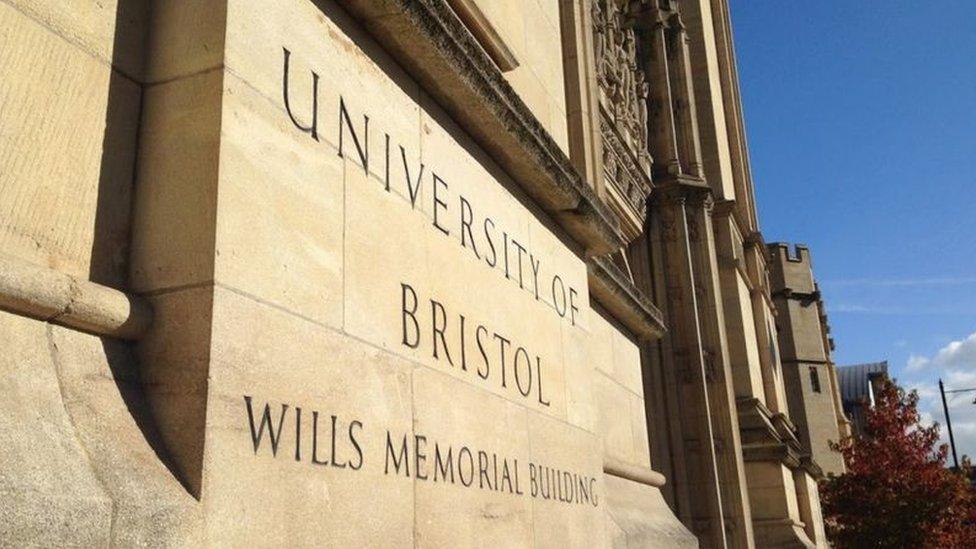Bristol University: Politicians urge action over professor's comments
- Published

The University of Bristol said it "does not endorse" comments made by Prof Miller but that any action taken will remain a "private matter"
More than 100 politicians have called for action over comments reportedly made by a University of Bristol professor.
The All-Party Parliamentary Group Against Anti-Semitism (APPG) accused Prof David Miller of "inciting hatred against Jewish students".
Prof Miller is reported to have accused Israel of wanting to "impose [its] will all over the world".
The university said it took the allegations seriously.
The APPG claims his reported comments "brought the university into disrepute".
Prof Miller accused Israel of an "all out onslaught...on the left globally," and that it wanted to "impose [its] will all over the world," according to the Jewish Chronicle., external
In a video, not seen by the BBC, he reportedly said Jewish student groups who were complaining to his university were part of a "drive to stop anyone speaking out about Palestine".
The APPG letter states that the signatories "stand against hatred" and that they wanted Jewish students to know that they "do not accept this behaviour".
"We know hate speech when we see it and will stand together with them to salute and protect the honour, dignity and decency they embody and with which they have been conducting themselves.
'Do not endorse'
"Professor Miller has brought your university into disrepute. You must now act before any further damage is done," the letter reads.
A spokesperson for the University of Bristol said "we do not endorse comments" made by Prof Miller.
"We have received a significant number of emails and letters in relation to Professor Miller's recent comments, expressing a range of views on what is a complex issue.
"As already stated, we do not endorse the comments made by Professor Miller about our Jewish students. We take all allegations of discrimination, racism and hate speech very seriously.
"Equally, we must balance the rights and often wide-ranging views of students and staff with institutional policies and national law concerning academic freedom and freedom of speech.
"Any action which we might take as an employer is a private matter," they said.
"We would like to reassure our University community and members of the public that this is of utmost priority and we are treating it as a matter of urgency."

Follow BBC West on Facebook, external, Twitter, external and Instagram, external. Send your story ideas to: bristol@bbc.co.uk , external
Related topics
- Published3 March 2021

- Published19 February 2021

- Published20 December 2020

- Published21 December 2020
